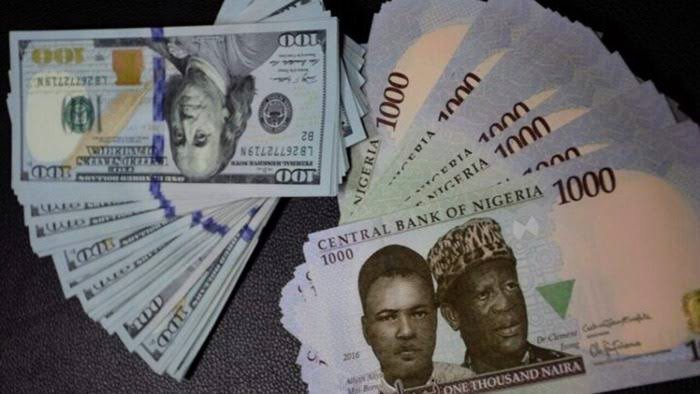
The Dollar to Naira Exchange Rate

The exchange rate between the US dollar (USD) and the Nigerian naira (NGN) is a critical economic indicator for Nigeria, impacting everything from the cost of imports and exports to the overall economic stability. To understand the fluctuations and implications of this exchange rate, consider several key factors, including economic policies, market demand, and external influences.
Historical Context
Initially, Nigeria introduced the naira in 1973, replacing the Nigerian pound. At that time, the naira was quite strong, trading at approximately 0.66 naira to one US dollar. However, over the years, several factors have contributed to the weakening of the naira. For instance, the global oil market plays a significant role in Nigeria’s economy, given that the country is one of Africa’s largest oil producers. Consequently, changes in oil prices directly affect Nigeria’s foreign exchange earnings and, by extension, the value of the naira.
Economic Policies and Their Impact
Furthermore, government policies profoundly impact the dollar to naira exchange rate. For example, the Central Bank of Nigeria (CBN) often intervenes in the forex market to stabilize the naira. These interventions include adjusting interest rates and controlling the supply of foreign currency. Nonetheless, these measures sometimes act as temporary fixes rather than long-term solutions. Therefore, the effectiveness of these policies can vary, and their impact on the exchange rate can be unpredictable.
Market Demand and Supply
In addition to government policies, the basic principles of demand and supply also influence the exchange rate. A high demand for dollars in Nigeria, coupled with a limited supply, typically leads to a depreciation of the naira. This scenario often occurs in Nigeria due to the country’s heavy reliance on imported goods, which increases the demand for foreign currency.
External Influences
Moreover, external factors such as global economic conditions and geopolitical events affect the exchange rate. For instance, economic policies in the United States, including changes in interest rates by the Federal Reserve, can lead to fluctuations in the value of the dollar, subsequently impacting the dollar to naira exchange rate. Additionally, international trade agreements and sanctions also play a role.
Current Trends and Future Outlook
Recently, the dollar to naira exchange rate has experienced significant volatility. This results from a combination of local economic challenges, including inflation and foreign debt, as well as external pressures like fluctuating oil prices and global economic uncertainties. Moving forward, Nigeria must diversify its economy to reduce its dependence on oil and improve its foreign exchange earnings.
Moreover, adopting more transparent and consistent economic policies could help stabilize the naira. Encouraging foreign investment and boosting local production can also mitigate the adverse effects of exchange rate fluctuations.
The Dollar to Naira Black Market
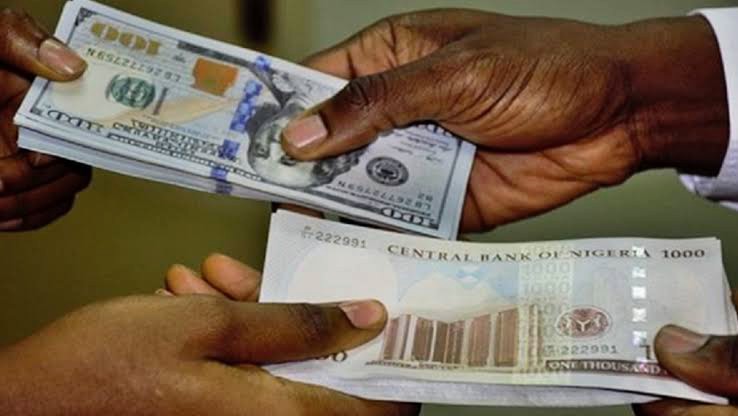
The foreign exchange market is vital to any nation’s economy, impacting domestic and international financial landscapes. The black market for currency exchange, particularly the USD to Nigerian Naira rate, is a notable aspect. This article examines its complexities, including causes, impacts, and regulatory measures.
Background of the Black Market
Firstly, understanding the black market is crucial. It operates outside formal financial systems, emerging in countries with tight government control over foreign exchange, like Nigeria. Here, businesses and individuals seek dollars for transactions they can’t conduct at official rates.
Causes of the Black Market for Dollars in Nigeria
The primary cause of the black market in Nigeria is the scarcity of foreign currency in the official market. The Central Bank of Nigeria (CBN) controls the supply of foreign currency, and due to various economic pressures, the availability of dollars can be limited. Consequently, when businesses and individuals cannot obtain dollars at the official rate, they turn to the black market.
Government policies and economic instability worsen the situation. For example, CBN restrictions on dollar withdrawals or transfers boost demand in the black market. Inflation and a weakening naira also make holding dollars appealing for Nigerians aiming to preserve wealth, further driving demand.
Impacts on the Economy
The black market for dollars affects Nigeria’s exchange rates. While the CBN sets an official rate, the black market often offers a more accurate reflection of the naira’s value against the dollar, causing confusion and mistrust among investors and businesses.
Moreover, the black market fuels inflation as businesses pass on higher costs to consumers, driving up prices for goods and services. This cycle weakens the naira further, increasing demand for dollars and perpetuating reliance on the black market.
Government Interventions
To counter the black market’s influence, the Nigerian government and CBN have implemented measures such as aligning the official exchange rate closer to the black market rate. This aims to diminish the incentive for black market transactions.
Additionally, the CBN has increased its foreign currency reserves and introduced various forex policies aimed at stabilizing the naira. These policies include selling dollars directly to businesses and individuals through official channels to meet legitimate demands and reduce the pressure on the black market.
In summary, the dollar to naira black market is complex and significantly impacts Nigeria’s economy. It provides essential foreign currency access but also poses economic challenges. Addressing it requires a balanced approach of regulation and naira stabilization efforts, crucial for Nigeria’s long-term financial stability.
How Much is 1 Dollar to Naira Today in Black Market?
As of June 14, 2024, the Naira Black Market exchange rate for 1 US Dollar stands at 1480 Naira. You can get 1480 Naira for every 1 Dollar you exchange. The Black Market exchange rate typically exceeds the official exchange rate because the government does not regulate it. This disparity significantly impacts the economy and influences various sectors.
The Black Market Exchange Rate
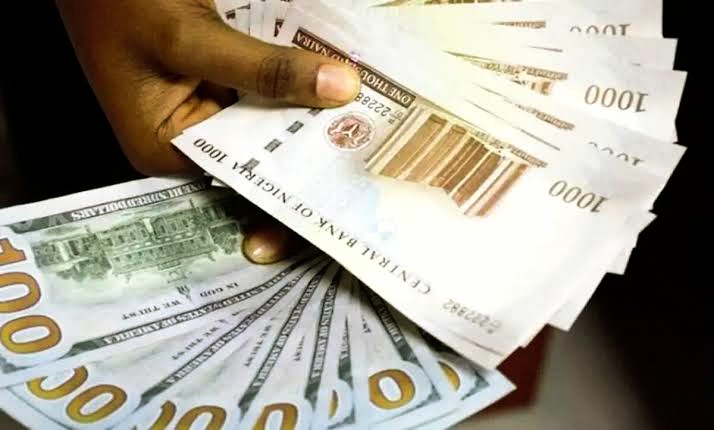
The Black Market exchange rate refers to the unofficial rate at which people trade currencies. It operates outside the regulatory framework established by the government and financial institutions. This market emerges due to various factors, including currency shortages, economic instability, and stringent governmental controls on currency exchange.
The Black Market runs on supply and demand principles. When demand for foreign currency, such as the US Dollar, spikes while supply remains limited, the price of the Dollar in terms of the local currency (Naira, in this case) increases. Conversely, if demand drops or supply improves, the exchange rate might stabilize or even decrease.
Factors Affecting the Dollar to Naira Black Market Exchange Rate
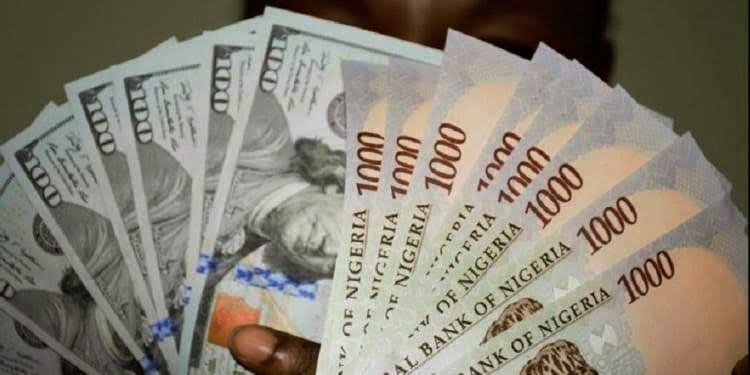
Several factors influence the Dollar to Naira Black Market exchange rate. Understanding these factors can help in anticipating potential fluctuations and making informed decisions regarding currency exchange.
1. Supply and Demand for the Dollar:
The supply and demand for the US Dollar primarily drive the Black Market exchange rate. In Nigeria, people constantly seek Dollars for various purposes, including international trade, travel, education, and investment. When the supply of Dollars dwindles, perhaps due to economic sanctions or lower oil revenues (which reduce the country’s foreign exchange reserves), the price of the Dollar in Naira rises. Conversely, when the supply improves, the exchange rate may become more favorable.
2. Political and Economic Situation in the US and Nigeria:
The political and economic conditions in both the US and Nigeria play a significant role in determining the exchange rate. In Nigeria, factors such as inflation, government policies, and political stability can either strengthen or weaken the Naira. For example, political instability or economic mismanagement often leads to a lack of confidence in the Naira, prompting people to convert their assets to more stable currencies like the Dollar, thus driving up its demand and price. Similarly, the economic and political situation in the US also impacts the value of the Dollar. A strong and stable US economy typically results in a stronger Dollar.
3. The Value of the US Dollar:
The global strength of the US Dollar against other major currencies also influences its value against the Naira. When the Dollar strengthens globally, it tends to fetch more Naira in the Black Market. Factors that affect the global strength of the Dollar include the US Federal Reserve’s interest rate policies, economic data such as GDP growth and employment figures, and geopolitical events.
4. Inflation Rates:
High inflation rates in Nigeria can erode the value of the Naira, leading people to seek the relative stability of the Dollar. As the Naira loses its purchasing power, more Naira is required to buy the same amount of Dollars, increasing the exchange rate.
5. Oil Prices:
Nigeria exports a significant amount of oil, and oil revenues impact the country’s foreign exchange reserves. When oil prices surge, Nigeria earns more revenue, which can stabilize the Naira. However, when oil prices drop, foreign exchange reserves dwindle, leading to a higher demand for the Dollar and a higher exchange rate.
How to Find a Reputable Dollar Black Market Exchange Dealer
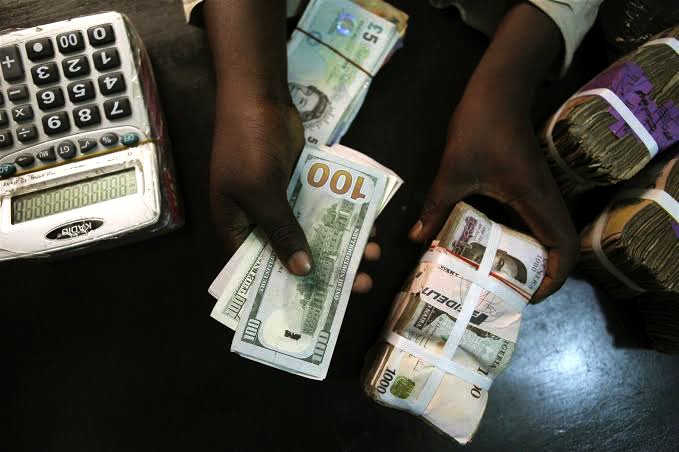
If you need to exchange USD for Naira, finding a reputable dealer is crucial to avoid scams and ensure a fair exchange rate. You can locate USD to NGN Black Market dealers both online and in person. Here are some tips to ensure you find a trustworthy dealer:
- Research: Conduct thorough research before engaging with a dealer. Look for reviews and recommendations online. Forums and social media groups dedicated to currency exchange can be useful resources. Websites like Nairaland and local business review platforms often have discussions about reliable dealers.
- Verification: Ensure the dealer has a verifiable physical location or business credentials. This reduces the risk of fraud. Established dealers often have offices or kiosks in recognized commercial areas. If dealing online, verify their digital footprint, check for a functional website, and confirm contact details.
- References: Ask for references or testimonials from previous customers to gauge the dealer’s reliability. Genuine dealers will have a history of satisfied customers. Don’t hesitate to ask for direct referrals from friends or family who have previously exchanged currency.
- Business Licenses: While Black Market operations are technically unofficial, many dealers still operate legitimate businesses that are registered in other capacities. Verify if the dealer is registered with any business bureau or association.
- Professionalism: Assess the dealer’s professionalism. Are they transparent about their rates? Do they provide a receipt? Professionalism in these small aspects often reflects overall reliability.
Tips for Exchanging Dollars for Naira on the Black Market
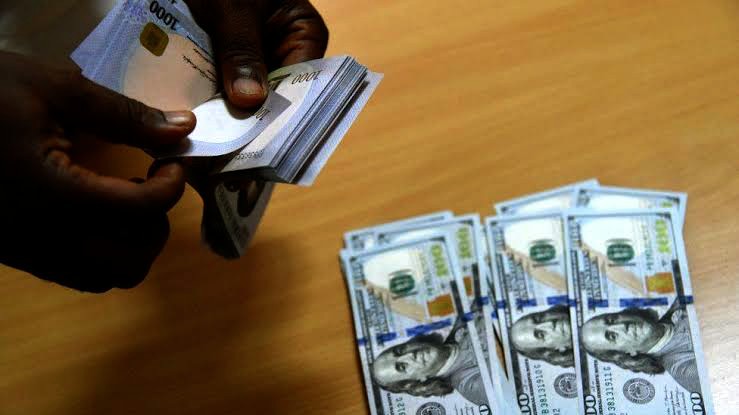
To ensure a smooth and secure exchange process, consider the following tips:
1. Use Reputable Dealers:
Only exchange Dollars with dealers who have a proven track record. Avoid individuals or businesses with no verifiable history or negative reviews. This minimizes the risk of fraud and ensures you get a fair rate.
2. Request a Receipt:
Always ask for a written receipt for the transaction. This provides proof of the exchange and can be useful in case of disputes. A receipt usually contains details of the amount exchanged, the exchange rate applied, and the date of the transaction.
3. Stay Informed:
Be aware of the current Dollar to Naira Black Market exchange rate before initiating the exchange. This knowledge helps you avoid being shortchanged. Regularly check reliable sources for up-to-date exchange rates, such as financial news websites, currency exchange rate apps, or local financial news channels.
4. Limit Large Transactions:
Do not exchange large amounts of Dollar currency at once. Instead, break down the amount into smaller transactions to minimize risk. Large transactions can attract attention and increase the risk of theft or fraud.
5. Avoid Peak Times:
Exchange rates can be more volatile during certain periods, such as right after major economic announcements or during political unrest. If possible, time your exchanges during more stable periods to get a better rate.
6. Meet in Safe Locations:
When exchanging currency in person, always choose safe and secure locations. Avoid secluded areas and opt for public, well-lit places. Some people prefer to conduct exchanges within banks or other financial institutions for added security, even if the transaction itself is unofficial.
7. Verify the Currency:
Ensure you verify the authenticity of the Naira notes you receive. Counterfeit currency is a risk in Black Market exchanges. Learn how to identify genuine Naira notes and use tools such as UV light detectors if necessary.
1 Dollar = 1480 Naira in Black Market
The current exchange rate of 1 US Dollar to 1480 Naira in the Black Market reflects the complex interplay of supply and demand, economic conditions, and global currency values. While the Black Market offers an alternative to official exchange channels, it comes with its own set of risks and challenges. By staying informed and cautious, you can navigate the Black Market exchange process more safely and effectively.
Understanding the factors that affect the exchange rate can help you anticipate changes and make informed decisions. Whether you need to exchange currency for travel, business, or personal reasons, taking the time to find a reputable dealer and following the best practices for safe transactions will help ensure a smooth and secure exchange experience.
In the dynamic world of currency exchange, staying informed and vigilant is key. As economic conditions evolve and market dynamics shift, the ability to adapt and make informed decisions becomes increasingly important.
Conclusion
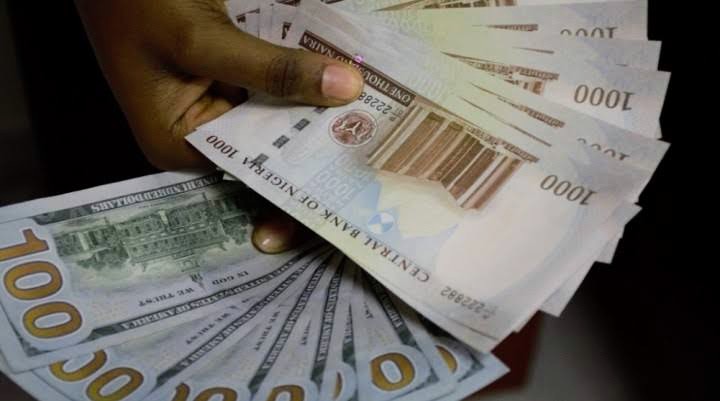
In conclusion, several factors influence the dollar to naira exchange rate, including historical trends, economic policies, market demand, and external influences. Understanding these dynamics is essential for policymakers, investors, and the general populace to navigate the economic landscape effectively. By addressing underlying economic issues and implementing strategic policies, Nigeria can aim for a more stable and favorable exchange rate in the future.
Click here to know more on dollar to naira exchange rate
Related Topics
CBN Boosts Forex Market: Sells Dollars to BDCs Below Market Rate N1,101/$1
Nigeria Braces for Major Rate Hike as Inflation Hits 28-Month High


